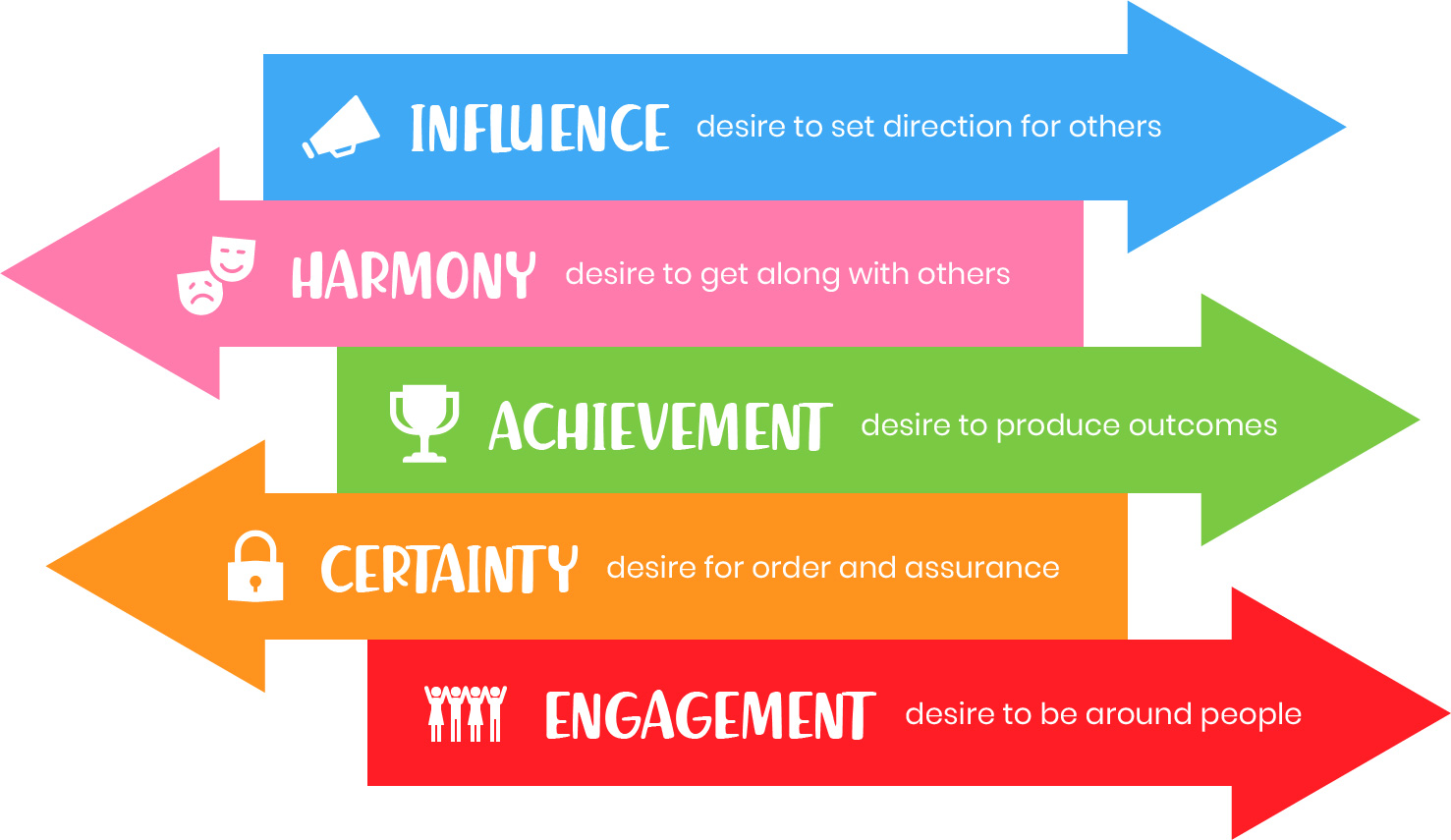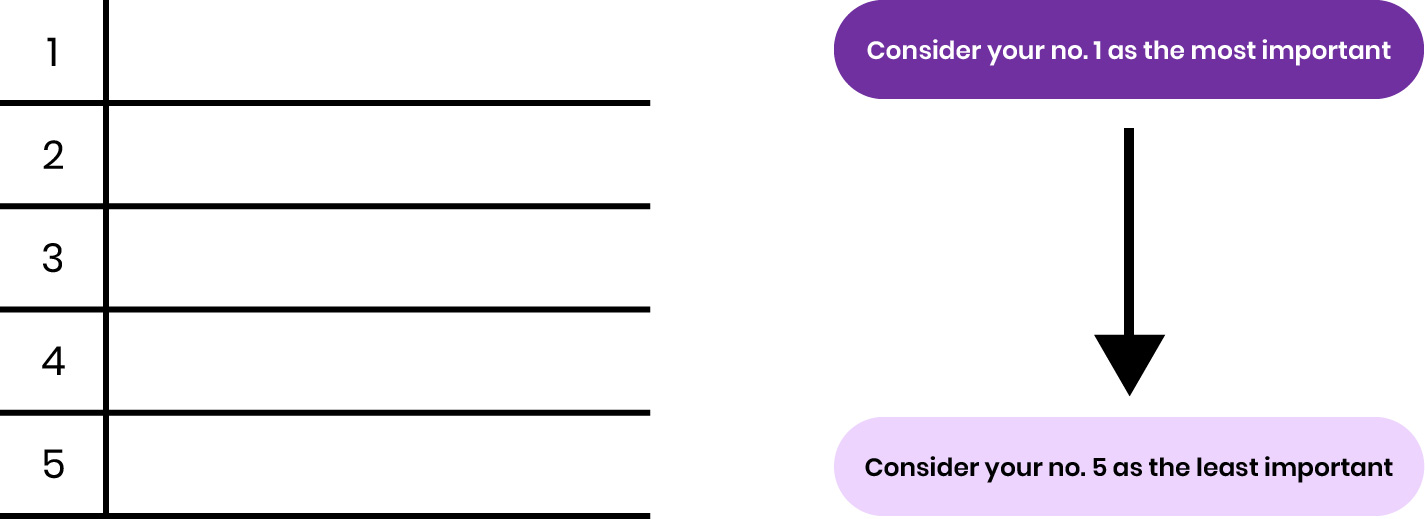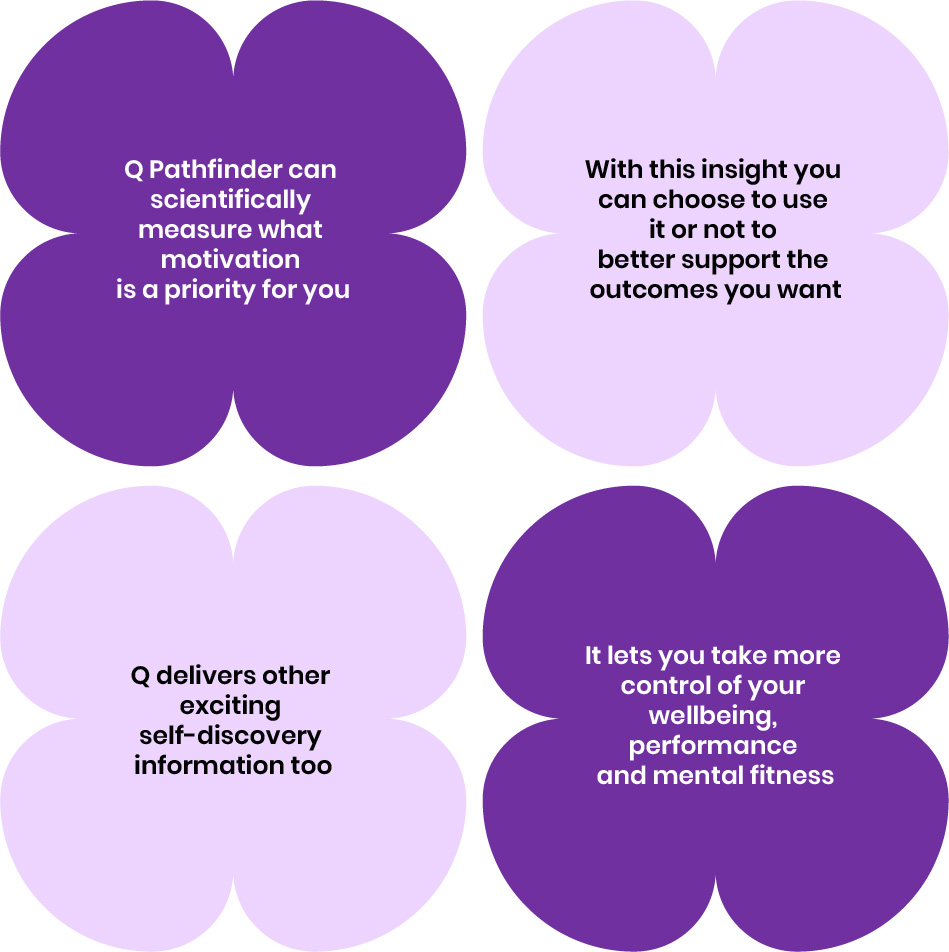Over thirty-one theories of motivation exist. Put very simply it is the reason for us acting or behaving in a particular way to pursue our goals.
When we know what our primary motivation is we can understand more clearly:
- How it can influence the way we go about reaching our goals and decide if it serves us well or not in every instance.
- If a situation we find ourselves in is actually supporting our motivation, our wellbeing and our ability to perform.
- That we have the power to make different choices, if needed, to create more of what we want in our lives. It is a matter of learning new behaviours to deal with challenging situations.
Example: If you know your main motivation is harmony, choosing not to argue with someone, even if you feel wronged, could be a priority for you. If your main motivation on the other hand is influence you are more likely to speak up.
Using this example, if you feel your voice would be lost and it would bother you, consider…
Q1. Will my primary motivation of harmony serve me well to reach my goal and get myself heard?
If yes - great
If no - answer Q2
Q2. Am I willing to adapt my comfort zone motivation of harmony and use a different one to reach my goal e.g., influence?
Remember: New behaviours can be learned all the time. We just need to know which ones we need to focus on.
The model below outlines five different motivational needs that people typically relate to:

All the motivational needs above are likely to be important to you in some way but there may be one or two that stand out as being a priority, as a real key driver of your behaviour.
What would you say are the most important motivations for you, from the list above?


Buy your Q now - click here.

